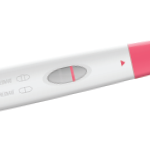NEW YORK (Reuters Health)—Women with a diagnosis of juvenile idiopathic arthritis (JIA) are at increased risk of pregnancy complications, according to Swedish researchers.
As Dr. Katarina Remaeus told Reuters Health by email, “In our cohort study . . . we found an association with adverse pregnancy outcomes including preterm birth, induction of labor and delivery by caesarean section.”
Women whose JIA persisted into adulthood were at particularly elevated risk, Dr. Remaeus of Karolinska University Hospital, Stockholm, and colleagues found.
In this subgroup, Dr. Remaeus said, “We also found increased risks of very preterm birth (before 32 gestational weeks), spontaneous preterm birth, infants born small for gestational age and pre-eclampsia.”
In a June 29 online paper in Annals of the Rheumatic Diseases, the researchers report on national data from 1992 to 2011 covering 1807 births among 1090 women with JIA and more than 1.9 million births among controls. The JIA group included only women with a diagnosis by specialists prior to delivery.
In the JIA group, 1169 births were in women with pediatric disease only; the remaining 638 births were in women whose disease persisted into adulthood.
Women with JIA were at increased risk of preterm birth in both subgroups. After adjustment the odds ratio in the pediatric group was 1.74; in the persistent group, it was 4.12.
Approximately 14% of JIA pregnancies were induced, compared with 10% in population controls.
Specifically, JIA persisting into adulthood was associated with very preterm birth (aOR 3.14), spontaneous preterm birth (aOR 1.63), and small for gestational age birth (aOR 1.84). It was also linked with early-onset pre-eclampsia (aOR 6.28) and late-onset pre-eclampsia (aOR 1.96). There was no increased risk of stillbirth, however.
Women with childhood-only JIA were at increased risk of cesarean delivery (aOR 1.42) and induction of labor (aOR 1.45), but compared to controls they had no higher risk of pre-eclampsia, assisted vaginal delivery, stillbirth and neonatal mortality.
The investigators note that they lacked information on medication before or during pregnancy. They also lacked data on disease activity, so they couldn’t confirm remission in the pediatric JIA group.
Still, in light of the findings, Dr. Remaeus concludes that a history of juvenile onset arthritis warrants increased surveillance during pregnancy.
Reference
- Remaeus K, Johansson K, Askling J., et al. Juvenile onset arthritis and pregnancy outcome: a population-based cohort study. Annals of the Rheumatic Diseases. 2017 Jun 29. [Epub ahead of print]


